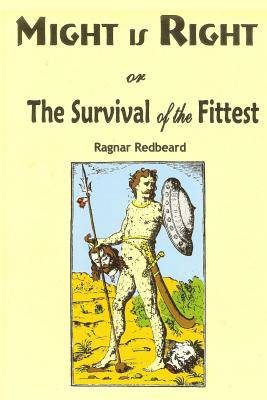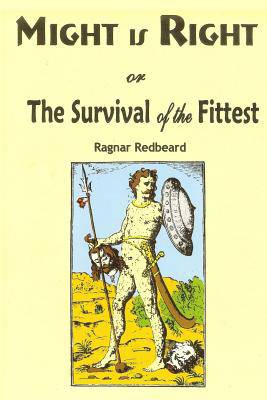
- Retrait gratuit dans votre magasin Club
- 7.000.000 titres dans notre catalogue
- Payer en toute sécurité
- Toujours un magasin près de chez vous
- Retrait gratuit dans votre magasin Club
- 7.000.0000 titres dans notre catalogue
- Payer en toute sécurité
- Toujours un magasin près de chez vous
15,45 €
+ 30 points
Format
Description
This is unabridged, original text of this infamous book. Might Is Right, or The Survival of the Fittest, is a book by pseudonymous author Ragnar Redbeard. First published in 1890, it heavily advocates social Darwinism, amoralism, and psychological hedonism. In Might is Right, Redbeard rejects conventional ideas of human and natural rights and argues that only strength or physical might can establish moral right (la Callicles). Libertarian historian James J. Martin called it "surely one of the most incendiary works ever to be published anywhere." Leo Tolstoy discussed the philosophy of Might Is Right in his 1897 essay What Is Art?: "The substance of this book, as it is expressed in the editor's preface, is that to measure "right" by the false philosophy of the Hebrew prophets and "weepful" Messiahs is madness. Right is not the offspring of doctrine, but of power. All laws, commandments, or doctrines as to not doing to another what you do not wish done to you, have no inherent authority whatever, but receive it only from the club, the gallows, and the sword. A man truly free is under no obligation to obey any injunction, human or divine. Obedience is the sign of the degenerate. Disobedience is the stamp of the hero. Men should not be bound by moral rules invented by their foes. The whole world is a slippery battlefield. Ideal justice demands that the vanquished should be exploited, emasculated, and scorned. The free and brave may seize the world. And, therefore, there should be eternal war for life, for land, for love, for women, for power, and for gold. The earth and its treasures is "booty for the bold." The author has evidently by himself, independently of Nietzsche, come to the same conclusions which are professed by the new artists."
Spécifications
Parties prenantes
- Auteur(s) :
- Editeur:
Contenu
- Nombre de pages :
- 130
- Langue:
- Anglais
Caractéristiques
- EAN:
- 9781682040232
- Date de parution :
- 28-05-15
- Format:
- Livre broché
- Format numérique:
- Trade paperback (VS)
- Dimensions :
- 152 mm x 229 mm
- Poids :
- 199 g

Les avis
Nous publions uniquement les avis qui respectent les conditions requises. Consultez nos conditions pour les avis.






